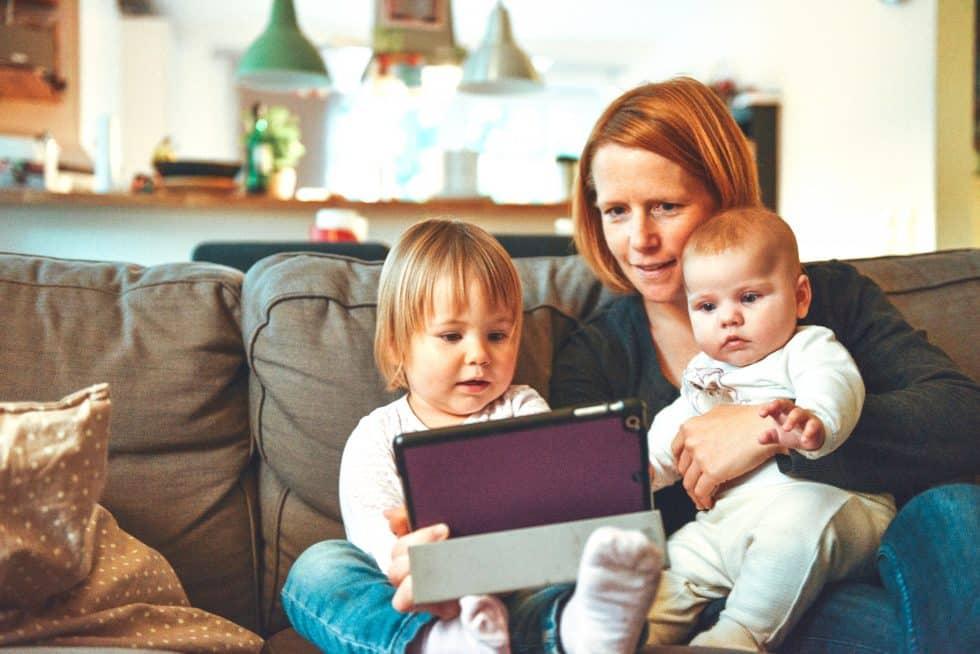In this section:
-
Helping families cope
-
Identifying “fake news” and COVID-19 resources for kids
-
General tips for maintaining emotional well-being in the home
This expertise is provided by Sharon Epel, LMFT.
If you spend a few minutes on many social media feeds, you might feel that you’re supposed to be excited about these “shelter in place” quarantine days and that you should be doing picture-perfect family activities, baking, organizing, playing games, dusting off puzzles, smiles all around. Limit your social media if it’s not helpful! Then remind yourself that, as always, social media provides only manufactured glimpses into others’ lives and not the whole story. At the same time, be open to any positives you can find. There will be ups and downs (as you already know), but you may be surprised at some benefits of all this togetherness.
Staying home will magnify family dynamics. Children will more easily become dysregulated or anxious. This can be especially challenging when you’re living with a teen or young adult who is struggling with depression, anxiety, ADHD, or emotion regulation issues (see our special section on this). Here are a few ideas that may help you and your family get through some long days of togetherness under one roof as you engage in physical distancing from much of the rest of the world.
General tips for maintaining emotional well-being in the home
This is a time to draw on your wisdom and experience about your own emotional needs, your child’s needs, and about parenting. You know the early signs when things are not going well. Think about what has worked before and trust your own expertise and resilience. None of us have ever dealt with a pandemic before, but you have dealt with your child’s moods and periodic outbursts. You’ve already had long weekends, bad weather days, and periods of illness when you’ve spent lots of time together. What did you enjoy? What did you do to cope when things were difficult? What worked? What didn’t?
Use your own past experience and rituals. You know your family and yourself best. What family, regional or cultural traditions did you find helpful at times of tremendous worry, stress or pain? Think of one or two difficult times when you were a young child, student, or younger adult, and spend a moment trying to remember what you and those around you did that was helpful. How can you recreate or adapt it for today?
Empathize with your kids. This is hard for them, too. They miss their friends, teachers, routines, sports, and all the other elements of normal life—just like you do!
Carve out quiet for yourself. If there is more than one adult in the house, agree to give each other regular time off for walks, showers, and chill time. Even ten minutes of sanctioned time for yourself can help your mood. If you’re on your own, give yourself permission to let your child have more screen time, or sleep later, if that buys you a little time for yourself.
Make a schedule but be flexible. With school out or online only and group activities cancelled, it is tempting to let everyone sleep in and stay in pajamas. But this can produce escalating distress and restlessness as the day goes on. Enlist your kids in making a simple schedule for the day, which ideally includes some heads-down time working on schoolwork or other projects, some household projects, some attempts at fresh air, and some entertainment. Collaborate on the schedule with everyone at home, so that the kids have buy-in, feel listened to, and can share their own ideas. That said, be flexible and know that in these trying times, we can’t always stick to the planned schedule. Cut yourself, your partner, and your kids slack, when things don’t go as planned.
Remember to listen. Do just that. We’re all facing cabin-fever as well as fear of the unknown, disappointment, and frustration. Take time to check in with your kids without giving instructions—be curious about their experience, and empathic. In fact, your empathy and curiosity might de-escalate an argument!
Don’t talk about the news all the time. For everyone’s well-being, try to limit how much you talk about COVID-19, and limit your own exposure to the constant news barrage. You can be informed enough, by checking the news a few times a day, not constantly.
Lighten up on your own agenda. The pressure is off in some ways. You might just have to let some things go to avoid a power struggle. Try to get clear each day on what really matters. It might change each day, which is okay. This is a good time for flexibility, self-compassion, and adding something fun together. Consider making new goals, like to get through this period well enough, to grow psychologically in our distress tolerance and flexibility.
Reframe this time together and add fun activities. Try to notice and share some of the positive parts about being home together—we all feel better when we start noticing the good. Look for lighter entertainment—check out stand-up comedy specials or feel-good movies on Netflix, Hulu, or Amazon Prime Video. Find reasons to laugh together. Share videos, like these happy bears that will bring much needed smiles.
Turn up the compassion. This is such a hard, unprecedented situation! Every one of us will probably feel unhappy, lonely, stressed, or scared at some point (or even many points) during this time. Be kind to yourself and your family.
Helping families cope
- National Child Traumatic Stress Network: Parent/Caregiver Guide to Helping Families Cope With the COVID-19
- Center for the Study of Traumatic Stress: Helping Homebound Children During the COVID-19 Outbreak
- "Where Did Everyone Go?" by Iain S. Thomas is a free book written for children to better understand why we are physically distancing.






